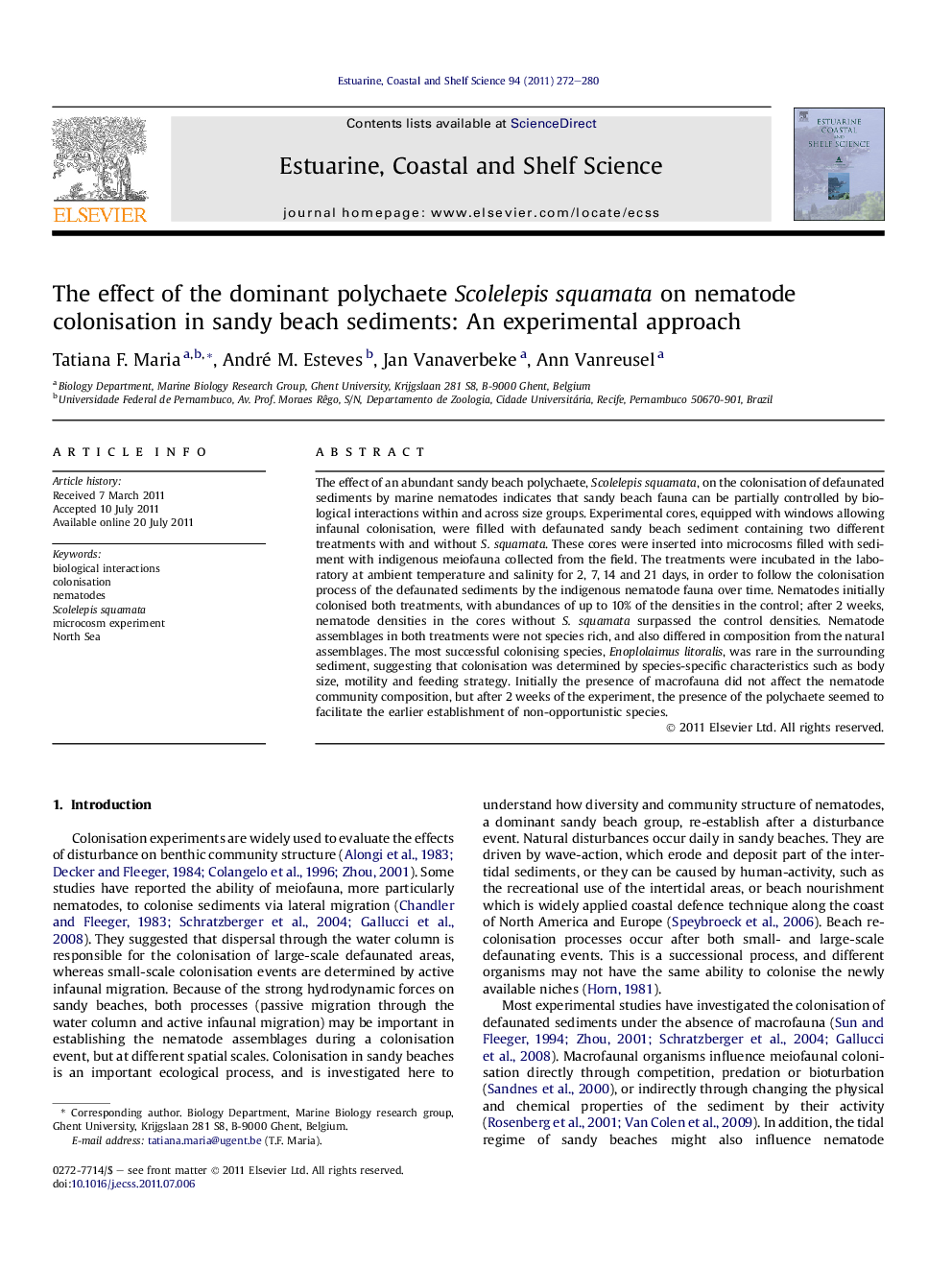| کد مقاله | کد نشریه | سال انتشار | مقاله انگلیسی | نسخه تمام متن |
|---|---|---|---|---|
| 4540462 | 1326670 | 2011 | 9 صفحه PDF | دانلود رایگان |

The effect of an abundant sandy beach polychaete, Scolelepis squamata, on the colonisation of defaunated sediments by marine nematodes indicates that sandy beach fauna can be partially controlled by biological interactions within and across size groups. Experimental cores, equipped with windows allowing infaunal colonisation, were filled with defaunated sandy beach sediment containing two different treatments with and without S. squamata. These cores were inserted into microcosms filled with sediment with indigenous meiofauna collected from the field. The treatments were incubated in the laboratory at ambient temperature and salinity for 2, 7, 14 and 21 days, in order to follow the colonisation process of the defaunated sediments by the indigenous nematode fauna over time. Nematodes initially colonised both treatments, with abundances of up to 10% of the densities in the control; after 2 weeks, nematode densities in the cores without S. squamata surpassed the control densities. Nematode assemblages in both treatments were not species rich, and also differed in composition from the natural assemblages. The most successful colonising species, Enoplolaimus litoralis, was rare in the surrounding sediment, suggesting that colonisation was determined by species-specific characteristics such as body size, motility and feeding strategy. Initially the presence of macrofauna did not affect the nematode community composition, but after 2 weeks of the experiment, the presence of the polychaete seemed to facilitate the earlier establishment of non-opportunistic species.
► Enoplolaimus litoralis rapidly colonises in the presence or absence of Scolelepis squamata.
► S. squamata inhibits/delays density of E. litoralis.
► Reduction of E. litoralis promotes an establishment of other nematode species.
► Secondary nematodes species increases H′ diversity.
Journal: Estuarine, Coastal and Shelf Science - Volume 94, Issue 3, 10 September 2011, Pages 272–280